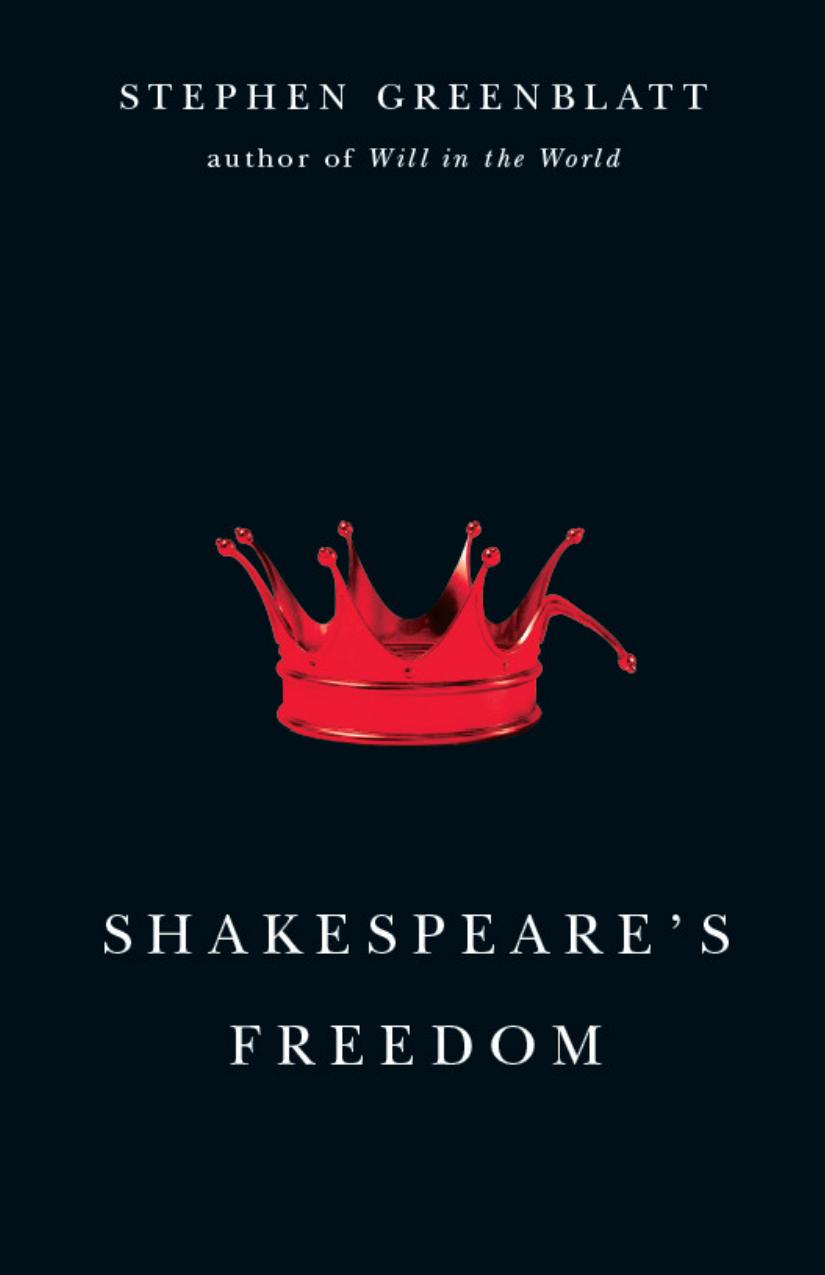Shakespeare's Freedom by Stephen Greenblatt

Author:Stephen Greenblatt
Language: eng
Format: epub, pdf
Publisher: University of Chicago Press
Published: 2010-08-14T16:00:00+00:00
{ CHAPTER FOUR }
Shakespeare and the Ethics of Authority
In 1998, a friend of mine, Robert Pinsky, who at the time was serving as poet laureate of the United States, invited me to a poetry evening at the White House, one of a series of black-tie events organized to mark the coming millennium. On this occasion President Clinton gave an introductory speech in which he recalled that his first encounter with poetry came in junior high school when his teacher made him memorize certain passages from Macbeth. This was, he remarked wryly, not the most auspicious beginning for a life in politics.
After the speeches, I joined the line waiting to shake the president’s hand. When my turn came, a strange impulse came over me. This was a moment when rumors of the Lewinsky affair were circulating but before the whole thing had blown up into the grotesque national circus that it soon became. “Mr. President,” I said, sticking out my hand, “Don’t you think that Macbeth is a great play about an immensely ambitious man who feels compelled to do things that he knows are politically and morally disastrous?” Clinton looked at me for a moment, still holding my hand, and said, “I think Macbeth is a great play about someone whose immense ambition has an ethically inadequate object.”
I was astonished by the aptness, as well as the quickness, of this comment, so perceptively in touch with Macbeth’s anguished brooding about the impulses that are driving him to seize power by murdering Scotland’s legitimate ruler:
I have no spur
To prick the sides of my intent, but only
Vaulting ambition which o’erleaps itself
And falls on th’other. (1.7.25–28)
I left the White House that evening with the thought that Bill Clinton had missed his true vocation, which was, of course, to be an English professor. But the profession he actually chose makes it all the more appropriate to consider whether it is possible in Shakespeare to discover an “ethically adequate object” for human ambition.
Macbeth himself seems tormented by the question. To be sure, his anxiety derives in part from a straightforward prudential concern, a fear that what he metes out will inevitably be meted out to him, measure for measure. But his queasiness has deeper roots in his sense of ethical obligation, in this case the obligation to obey and serve the king his master. His wife, who knows her husband’s character all too well, has already cannily anticipated his inner struggle:
Thou wouldst be great,
Art not without ambition, but without
The illness should attend it. (1.5.16–18)
Hence, faced with the perfect opportunity to seize the crown—King Duncan is a guest in his castle—Macbeth holds back. He is, he reflects, Duncan’s kinsman and subject, and at this moment he is also the king’s host, “Who should against his murderer shut the door, / Not bear the knife myself” (1.7.15–16). Above all, there has been nothing in the king’s comportment that would make his murder a remotely justifiable act. (Shakespeare characteristically altered his source, eliding evidence of Duncan’s incompetence and thus eliminating a rational basis for his assassination.
Download
This site does not store any files on its server. We only index and link to content provided by other sites. Please contact the content providers to delete copyright contents if any and email us, we'll remove relevant links or contents immediately.
The Power of Myth by Joseph Campbell & Bill Moyers(1065)
Half Moon Bay by Jonathan Kellerman & Jesse Kellerman(987)
A Social History of the Media by Peter Burke & Peter Burke(985)
Inseparable by Emma Donoghue(983)
The Nets of Modernism: Henry James, Virginia Woolf, James Joyce, and Sigmund Freud by Maud Ellmann(911)
The Spike by Mark Humphries;(811)
The Complete Correspondence 1928-1940 by Theodor W. Adorno & Walter Benjamin(787)
A Theory of Narrative Drawing by Simon Grennan(778)
Culture by Terry Eagleton(775)
Ideology by Eagleton Terry;(741)
World Philology by(719)
Farnsworth's Classical English Rhetoric by Ward Farnsworth(715)
Game of Thrones and Philosophy by William Irwin(712)
Bodies from the Library 3 by Tony Medawar(709)
High Albania by M. Edith Durham(704)
Adam Smith by Jonathan Conlin(693)
A Reader’s Companion to J. D. Salinger’s The Catcher in the Rye by Peter Beidler(688)
Comic Genius: Portraits of Funny People by(652)
Monkey King by Wu Cheng'en(651)
